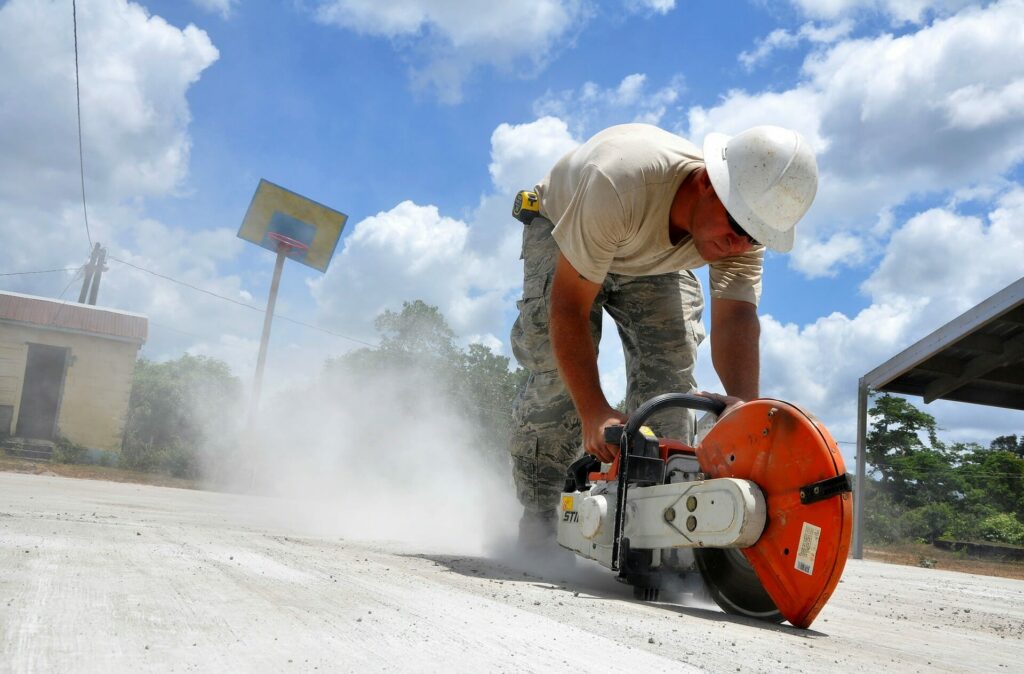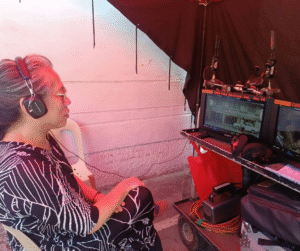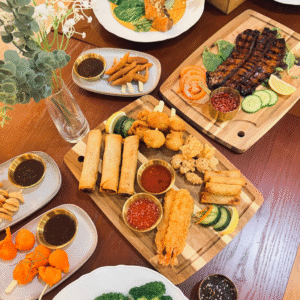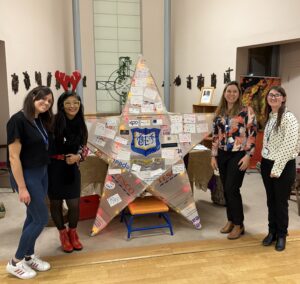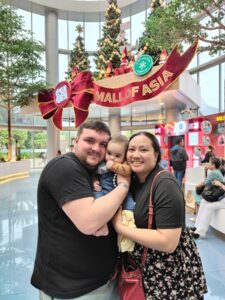Many Filipino construction workers in Saudi Arabia have lost their jobs in even before the pandemic. Photo credit: Pixabay
Thousands of overseas Filipino workers (OFWs) have been made redundant because of Covid-19. However, the all-enduring Filipino safety net during crises – the family – soldiered migrant breadwinners to confront uncertain economic futures, with love.
Some repatriated OFWs recently shared their experiences during a webinar organized by the Catholic-run nonprofit Scalabrini Migration Center in Manila. Wilfredo Pamposa who came back from Saudi Arabia was one of those who attended the event. Unpaid salaries and benefits from two bankrupt Saudi Arabian construction firms had left him without any money even before the pandemic.
To make things worse, Wilfredo’s iqama (the Kingdom’s permit for employment visa holders) had expired. Since 2019, he and fellow Filipino workers had been economically immobile: “I was on standby for a year, remitting nothing to my family.”
Raising funds through whatever means necessary, Wilfredo miraculously paid the penalty for his expired iqama and his exit visa fees. With the help of Philippine diplomatic and labour personnel in Riyadh, he was repatriated in May.
Wilfredo’s tone grew hushed as he narrated this story during the webinar. After at least a year of being away from his family, he finally slept on Philippine soil, albeit during a nine-day quarantine at a small motel in Quezon City.
When the negative swab test result came out, wife Grace cried out in glee. “What’s important is that he’s back home safe – even without money,” she says. The trip from the motel to their rented apartment in Antipolo City had finally ended Wilfredo’s years of financial despair.
“A grieving process that will take time”
Wilfredo’s story reveal a “grieving process” that returned OFWs have to go through, explains veteran OFW counsellor Fr. Nilo Tanalega, S.J. of the UGAT Foundation .
“A job and a dream were both lost,” Fr. Nilo tells OFW couples during the webinar.
Fr. Nilo recommends constant communication between couples at these time of reintegration, when quarantines and other restrictions are also in place. This approach, he adds, is a “process that will take time for them to adjust and adapt to family life again.”
“Remember, the OFW is accustomed to living alone. Then he or she went back abruptly,” Fr. Nilo reminds couples.
The pandemic and the resulting quarantines OFWs faced saw them at risk of mental health problems. Recent reports of suicides by Filipino seafarers for example “are serious matters,” Fr. Nilo says. He advises couples with repatriated OFW breadwinners to ask themselves how they and their families should soldier on.
Economically, for example, he urges OFW couples to ask themselves during this pandemic: “How will we know if what we have is enough for us [Paano natin malalaman na sapat na iyan para sa inyo]?”
Time for family despite economic loss
For the Pamposa family, Wilfredo’s repatriation was something they looked forward to. “We’re happy even without money. At least he’s back home [Masaya po kami kahit walang pera. At least nakauwi na],” a teary-eyed Grace uttered. “We can earn money once again. What’s important is he’s safe [Iyung pera naman, mapagkikitaan uli iyan. Ang importante, ligtas siya].”
“I tended to an ‘ihaw-ihaw’ (street food) stall,” before the pandemic, Grace Pamposa shares. Schooling had been stopped for two of their three children since 2019 who earn from tutoring neighbourhood children.
The support of family is much needed at this time when over 200,000 repatriated land- and sea-based OFWs have been laid off from work. According to the Department of Labor and Employment, more than 600,000 OFWs have requested for cash assistance from them. The agency provides a one-time £152 ($200) cash aid to eligible workers.
Struggles at sea
In March, seafarer Archie Arce saw his cruise ship grounded just a month from his return to active duty, with Covid-19 hitting passengers and crew of many luxury cruises.
Docked for five weeks by required quarantine measures, Archie – now back home – is unsure how to make ends meet. He is keenly aware that in Caloocan City where he lives, everyone appears to be running an online business. “I still can’t think of a business until now because many, many people here are now doing business online [Wala kaming maisip na puwedeng business. Dami na kasing nago-online].”
Wife Regine (a church volunteer) and their 16-year-old daughter comforted their “sad” father with smiles upon his stepping foot in their humble abode. “Finally [Sa wakas],” Regine said gleefully, “you’re here! We’ll take care of you.” They have decided not to send their daughter back to school “until the financial support comes back.”
Family bonding and prayer
And with Filipinos still perplexed at the uncertainties their immediate futures hold, 28-year-old seafarer Teodoro Rosello worries about his work. “Will we get rehired if our companies recover from this pandemic?” he asks.
But the return home, Teodoro says, “is freedom from work” for seafarers like him. Going home to Bacoor City, Cavite is “the happiest part,” and wife Charity made Teodoro’s return happier with a tight hug.
“The family’s whole again. I’m seeing my three boys again,” Teodoro said.
Yet Covid-19 forced the Teodoros to stay at home as Cavite was placed on general community quarantine. All plans for out-of-town leisure were cancelled.
Despite this, the family have been enjoying cooking and grilling together, and singing to their hearts’ delight. For now, singing seems to pacify the Teodoros’ stresses caused by pandemic. But for how long, one can only guess.
One thing which has kept their spirits up at this time is prayer, Charity says. “During this time that we do not know what happens next, we need to cling to prayers. If before we had trust in the Lord, now all the more we need to stick to Him.”

